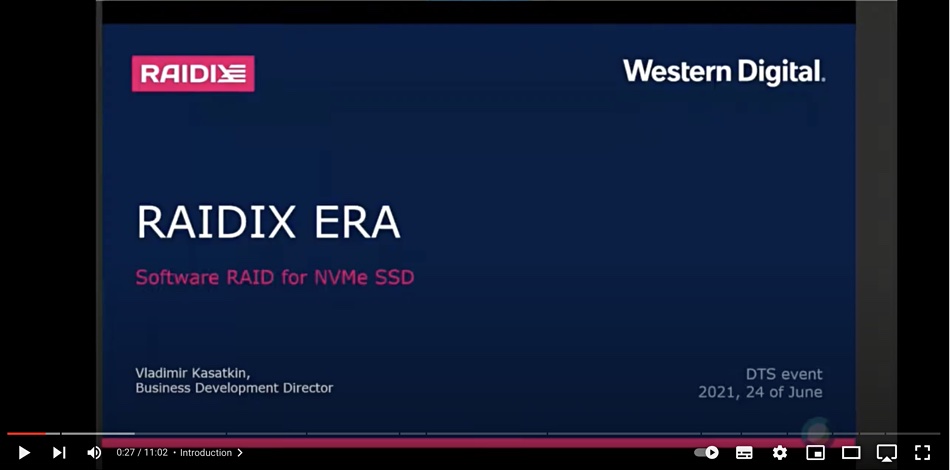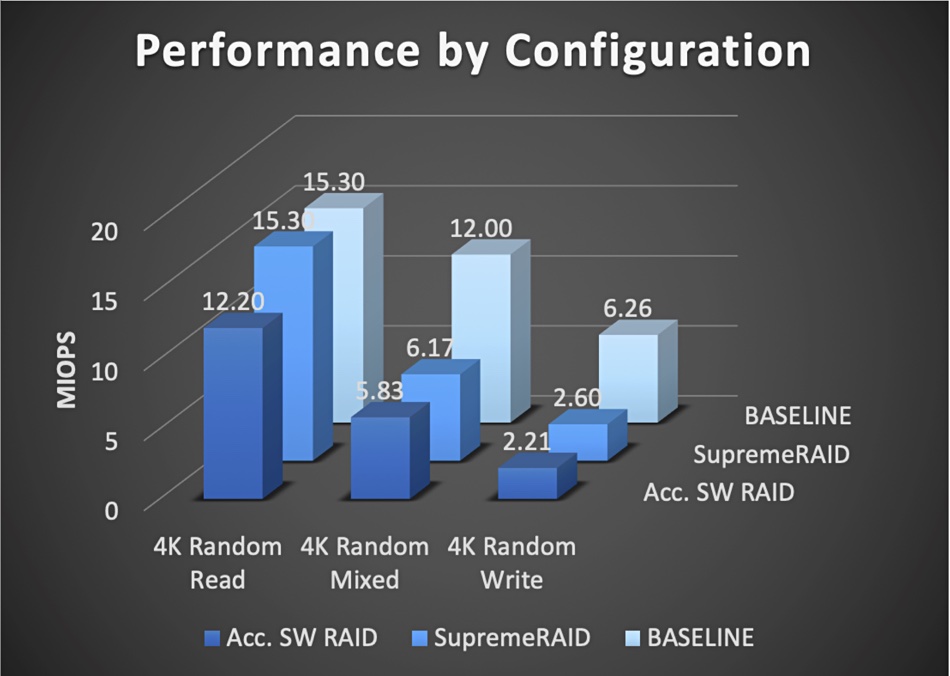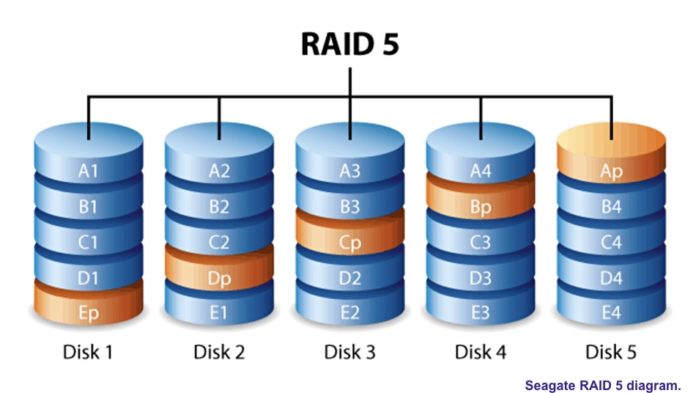A company called Xinnor has apparently sprung up out of nowhere with mature xiRAID software RAID technology that seemingly goes faster than the high-speed GPU-powered SupremeRAID card developed by GRAID.
Xinnor, with the company itself based in Israel, is actually RAIDIX reinvented. The story starts in 2009 when a software RAID developer called RAIDIX was founded in St. Petersburg, Russia. It opened a second office in Stansstad, Switzerland and developed its ERA software providing RAID for NVMe SSDs. In 2019 it claimed this could deliver 35GBps and 5.5 million IOPS from a server with an NVMe storage chassis, achieving this with parallel IO handling, fast and patented methods of erasure coding, lockless datapaths and fast checksum calculation.
In the 2010–2020 decade RAIDIX partnered with Western Digital, Broadcom, Micron, Supermicro and other suppliers and gained more than 5,000 installations of its software. It had a network of channel partners in Russia and abroad, including the United States, South Korea, the United Kingdom, Brazil, India, Egypt and other markets.

The ERA software is high speed. A RAIDIX video says its ERA software can provide RAID 5 performance with 8 x WD Ultrastar DC SN640 NVMe SSDs equivalent to RAID 10 performance with 16 NVMe SSDs and competing RAID technology such as Intel’s hybrid VROC (Virtual RAID On a Chip). This saves up to 50 percent of drive costs.
RAIDIX customer Eurotech used ERA software and WD NVMe SSDs in its DynaCOR 40-35, HPEC (High Performance Embedded Computing) networked storage system for Level 5 autonomous driving applications with an 80Gbit/s write speed.
RAIDIX was sold to Russia-based technology group Yadro in September this year. Some of the St Petersburg-based team emigrated to Israel and started up Xinnor, funding it from the proceeds of the buyout, and took key development engineers and architects onboard from RAIDIX.
By the terms of the purchase agreement, Yadro gets the rights to RAIDIX IP in Russia and Xinnor has the rights to use the IP outside of the Russia/CIS region. The Xinnor product, ERA as was, is now called xiRAID. Xinnor also was able to keep all the international customers in the RAIDIX-Yadro buyout, such as Elements.TV, Core Micro Systems, SGO, DriveSys, Artiza Network, CheetahRAID, and EchoStreams.
Now we have Xinnor promoting its xiRAID faster-than-RAID-hardware software for NVMe SSDs with several performance tests results from the RAIDIX era – for example, Western Digital here and here, Intel here and here.
We understand that in a couple of weeks Western Digital will publish a new paper describing the use of xiRAID to accelerate the BeeGFS based storage systems. Xinnor has been testing xiRAID against GRAID in a Western Digital lab and is planning a run against the newest PCIe 4.0 GRAID SR-1010 hardware-accelerated software RAID card versus its xiRAID 4.0 in the lab.
GRAID point of view
Thomas Paquette, GRAID SVP and GM, said he does “find it pretty hard to believe, especially with only 10 percent CPU utilization, without employing a massively powerful CPU, WD did a ‘bake-off’ between Graid and s/w RAID and we came out on top. The summary of that testing can be found here.” That bakeoff was against RAIDIX ERA software RAID and used GRAID’s SupremeRAID SR-1000 PCIe 3.0 adapter.

The testing was detailed – it’s worth a read – and the result concludes: “The critical issue in this solution is making RAID 5, which has always been the most desired RAID configuration (add one device to eliminate a single point of failure), sufficiently performant for use across most general storage needs. The SupremeRAID does this in an elegantly simple implementation requiring no significant changes to the environment.”
Sergey Platonov, Xinnor’s VP for Product Strategy, tells us that, “while GRAID is indeed very fast, it comes with a slot tax, taking up PCIe lanes that are usually at a premium in NVMe-heavy setups.”
Xinnor is aiming to list in the IO500 before the middle of next year.








